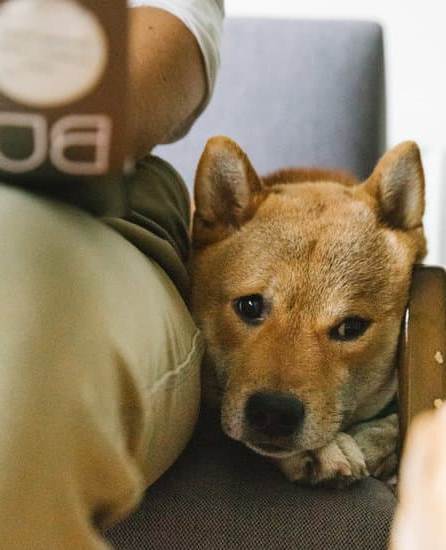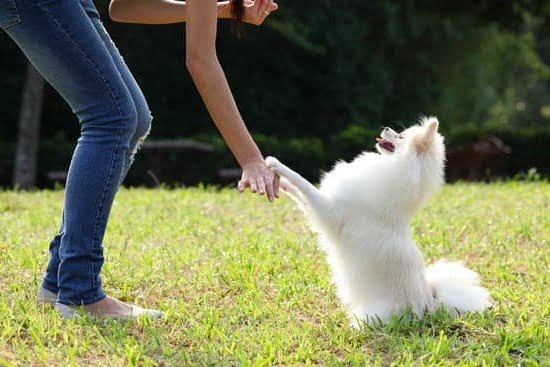Are you struggling with training a dog who won’t take treats? It can be frustrating and challenging when traditional reward-based training methods don’t seem to work.
In this article, we will explore the reasons behind a dog’s disinterest in treats, how to assess their health and medical history, and alternative rewards and motivators for training. We’ll also discuss implementing positive reinforcement techniques, gradual desensitization to treats, establishing a consistent training routine, seeking professional help from a certified dog trainer, and overcoming training challenges with patience and persistence.
One of the most common frustrations for dog owners is their pet’s refusal to take treats during training sessions. This can be puzzling, but there are several potential reasons why a dog may not respond to treats as expected. Whether it’s due to health issues or simply personal preferences, understanding these reasons is crucial in finding effective solutions for successful training.
Assessing your dog’s health and medical history is an important step in addressing their lack of interest in treats. Physical discomfort or underlying health conditions could be impacting their behavior. In addition to ruling out any medical issues, looking into alternative rewards and motivators for your dog can make a significant difference in their willingness to participate in training exercises.
Assessing the Dog’s Health and Medical History
Consulting a Veterinarian
Before delving into training methods and techniques for a dog who won’t take treats, it is crucial to rule out any underlying health issues that may be causing the disinterest in food rewards. A visit to the veterinarian will help determine if there are any medical reasons contributing to the dog’s lack of appetite or motivation. It is important to address any potential health concerns before proceeding with training.
Reviewing Medical History and Diet
In addition to seeking professional input from a veterinarian, it is essential for dog owners to review their pet’s medical history and current diet. Certain medications, allergies, or digestive issues may affect the dog’s willingness to accept treats as a reward. Analyzing the dog’s eating habits, food preferences, and overall behavior around mealtime can also provide valuable insights into potential factors affecting treat motivation.
Exploring Supplemental Avenues for Nutritious Support
If the dog’s medical assessment determines that there are no significant health issues impacting treat motivation, it may be beneficial to explore supplemental avenues for providing essential nutrients and balanced nutrition. This can involve incorporating high-value food alternatives or exploring natural dietary supplements that appeal to the dog’s palate and provide an alternative source of energy and nourishment during training sessions.
By addressing any nutritional gaps, dog owners can work towards enhancing their pet’s overall wellbeing while navigating training challenges with a non-treat-motivated dog.
Exploring Alternative Rewards and Motivators for Training
For dog owners struggling with a pup who won’t take treats, it’s important to explore alternative rewards and motivators for training. While treats are commonly used as positive reinforcement during training, some dogs may not be motivated by food alone. In these cases, finding alternative rewards and motivators is crucial for successful training.
Here are some alternative rewards and motivators to consider when training a dog who won’t take treats:
- Playtime: For many dogs, playtime with their favorite toy can be just as rewarding as a treat. Incorporating short play sessions into training can help keep your dog engaged and motivated.
- Verbal praise: Dogs crave the approval of their owners, so verbal praise can be a powerful motivator. Using an enthusiastic tone and praising your dog when they exhibit desired behaviors can reinforce those behaviors.
- Petting and physical affection: Many dogs respond well to physical affection, such as belly rubs or scratches behind the ears. Using petting and physical affection as a reward during training can be effective for non-treat-motivated dogs.
It’s important to observe your dog’s behavior and preferences to determine which alternative rewards and motivators are most effective for them. Some dogs may respond better to one reward over another, so it may take some trial and error to find the right combination that works for your pup.
In addition to exploring alternative rewards, incorporating other motivators such as toys or activities that your dog enjoys can also increase their motivation during training sessions. By understanding what truly motivates your dog, you can adapt your training approach to effectively work with a non-treat-motivated pup.
Implementing Positive Reinforcement Techniques
When faced with a dog who won’t take treats, implementing positive reinforcement techniques becomes crucial for successful training. Positive reinforcement involves rewarding desired behaviors to encourage their repetition, and it can be an effective approach for training non-treat-motivated dogs.
Use Verbal Praise and Affection
For dogs that are not motivated by treats, verbal praise and affection can serve as powerful rewards. When your dog follows a command or exhibits the desired behavior, immediately praise them enthusiastically in a happy tone of voice. Additionally, physical affection such as petting, cuddling, or belly rubs can also be used as rewards for their good behavior.
Utilize Favorite Toys and Playtime
If your dog is not interested in treats, consider using their favorite toys and playtime as rewards during training sessions. Incorporate short play breaks into your training routine to keep them engaged and motivated. For example, after they successfully follow a command, reward them with a game of tug-of-war or fetch with their favorite toy.
Clicker Training
Clicker training is another positive reinforcement technique that can be effective for dogs who are not treat-motivated. The clicker serves as a ‘bridge’ or signal to communicate to the dog that they have performed the desired behavior and will receive a reward. Use the clicker to mark the exact moment when the dog exhibits the correct behavior, followed by giving them verbal praise or engaging in playtime to reinforce their actions.
Implementing these positive reinforcement techniques can help overcome the challenges of training a non-treat-motivated dog. It’s important to remember that every dog is unique, so it may take some trial and error to find the most effective motivators for your canine companion. With patience and persistence, you can successfully train your dog without relying on treats as the primary incentive for learning new behaviors.
Gradual Desensitization to Treats and Rewarding Behavior
It can be frustrating when your dog just won’t take treats during training sessions. However, there are ways to gradually desensitize your pup to treats and still effectively reward their good behavior. Here are some tips on how to achieve this:
1. Identify the Root Cause: First, it’s important to understand why your dog may not be interested in treats. It could be due to health issues, stress, anxiety, or simply being too full from a meal. By identifying the root cause, you can better address the problem and find alternative rewards.
2. Explore Alternative Rewards: If your dog isn’t motivated by treats, consider using other rewards such as praise, toys, or playtime. Some dogs may respond better to verbal encouragement or a favorite toy as a reward for positive behavior.
3. Gradual Desensitization: Start by introducing low-value treats or even pieces of their regular kibble during training sessions. Over time, gradually introduce higher-value treats and observe if your dog becomes more receptive. This gradual desensitization can help your dog develop an interest in treats over time.
4. Rewarding Behavior: When your dog does respond positively to a treat during training, make sure to praise them enthusiastically and incorporate playtime or a favorite activity as an additional reward for their good behavior.
By following these steps and being patient with your non-treat-motivated dog, you can effectively train them using alternative rewards and positive reinforcement techniques. Remember that every dog is different, so it’s essential to find what motivates your furry friend and adjust your training approach accordingly. With dedication and persistence, you can overcome the challenges of training a non-treat-motivated dog and celebrate the milestones and progress along the way.
Establishing a Consistent Training Routine and Environment
When it comes to training a dog who won’t take treats, consistency is key. Maintaining a regular schedule for training sessions can help your dog feel more comfortable and secure, which can ultimately lead to better focus and engagement during training. Dogs thrive on routine, so establishing a consistent environment for training can make a significant difference in their willingness to participate.
One way to create a consistent training routine is by designating a specific time each day for training sessions. Whether it’s in the morning or evening, having a set schedule for training can help your dog anticipate and prepare for the session. Additionally, picking a quiet and familiar location for training can also contribute to creating a consistent environment that encourages focus and attentiveness from your dog.
In addition to scheduling regular training sessions, it’s important to maintain consistency in your commands and expectations. Using the same verbal cues and hand signals consistently can help your dog understand what is expected of them, leading to clearer communication between you and your pet. By maintaining a predictable routine and environment for training, you can help build trust and confidence in your non-treat-motivated dog.
| Consistency | Benefits |
|---|---|
| Regular schedule for training | Improves focus and engagement |
| Familiar location for training | Encourages attentiveness from the dog |
| Consistent commands and expectations | Clearer communication with the dog |
Seeking Professional Help and Guidance From a Certified Dog Trainer
A certified dog trainer can help assess the underlying reasons behind the dog’s disinterest in treats. They can also provide guidance on how to assess the dog’s health and medical history to rule out any potential physical or medical issues that may be affecting their appetite or motivation. By identifying any underlying causes, a dog trainer can offer personalized advice and strategies for addressing these issues.
Furthermore, a professional dog trainer is experienced in exploring alternative rewards and motivators for training. From toys to praise and playtime, they can help identify what other forms of positive reinforcement may elicit a positive response from the non-treat-motivated dog. With their expertise, they can guide pet owners in implementing positive reinforcement techniques tailored to their specific dog’s needs, preferences, and personality.
In addition to this, seeking professional help allows pet owners access to resources for establishing a consistent training routine and environment. A certified dog trainer can provide personalized training plans and strategies that align with the unique needs of the non-treat-motivated dog.
By offering ongoing support and guidance, they empower pet owners to navigate training challenges with patience and persistence while celebrating milestones and progress along the way. Ultimately, seeking professional help is an invaluable resource for pet owners navigating the unique challenges of training a non-treat-motivated dog.
Patience and Persistence
Training a dog who won’t take treats can be a frustrating challenge for many pet owners. However, it’s essential to understand the reasons behind their disinterest in treats before implementing any training techniques. Some dogs may have a diminished sense of smell or taste due to health issues, while others may simply have preferences for different types of rewards.
Before attempting to train a non-treat-motivated dog, it’s crucial to assess their health and medical history. This involves consulting with a veterinarian to rule out any underlying health conditions that may be affecting the dog’s appetite or interest in treats. Additionally, exploring alternative rewards and motivators for training can be beneficial. These could include praise, toys, playtime, or even a favorite activity like going for a walk.
Implementing positive reinforcement techniques is another key aspect of training a dog who won’t take treats. This involves rewarding desirable behaviors with the chosen alternative motivator, such as verbal praise or a favorite toy. Gradual desensitization to treats and rewarding behavior is also important, as it can help acclimate the dog to accepting treats over time.
| Training Technique | Description |
|---|---|
| Positive Reinforcement | Rewarding desirable behaviors with verbal praise or favorite toy |
| Gradual Desensitization | Acclimating the dog to accepting treats over time |
Celebrating Milestones and Progress in Training a Non-Treat-Motivated Dog
In conclusion, training a dog who won’t take treats can be a challenging but ultimately rewarding experience. By understanding the reasons behind the dog’s disinterest in treats and assessing their health and medical history, pet owners can better explore alternative rewards and motivators for training. Positive reinforcement techniques, gradual desensitization to treats, and establishing a consistent training routine are essential steps in overcoming training challenges with a non-treat-motivated dog.
It is crucial for pet owners to remain patient and persistent while working with their non-treat-motivated dog. Seeking guidance from a certified dog trainer can provide valuable insight and support in addressing the unique needs of the dog. Celebrating milestones and progress in training is equally important, as it highlights the success of the training efforts and strengthens the bond between the pet owner and their furry companion.
Ultimately, with dedication, understanding, and an open-minded approach, pet owners can successfully train a non-treat-motivated dog. This process may require additional time and effort compared to traditional training methods, but the end result will be a well-behaved and obedient companion who responds to alternative rewards and motivators with enthusiasm. Whether it’s verbal praise, interactive playtime, or access to favorite toys, there are numerous ways to effectively train a dog who won’t take treats.
Frequently Asked Questions
How Do I Get My Stubborn Dog to Listen Without Treats?
Getting a stubborn dog to listen without treats can be challenging, but it’s not impossible. One approach is using positive reinforcement through praise or toys instead of treats. Consistency and patience are key to modifying your dog’s behavior.
What if My Dog Doesn’t Catch Treats?
If your dog doesn’t catch treats, it could be due to various reasons such as poor eyesight, lack of coordination, or simply not understanding the concept. You can try using larger or softer treats, practicing at a closer distance, or teaching alternative catching methods like “trap the treat” with their paw.
How Do You Train a Dog to Take Treats?
Training a dog to take treats involves teaching them basic commands like “sit” or “wait,” then offering the treat only when they follow these commands. It’s important to use positive reinforcement and repetition while training, gradually increasing the difficulty as your dog progresses in their behavior and obedience.

Welcome to the blog! I am a professional dog trainer and have been working with dogs for many years. In this blog, I will be discussing various topics related to dog training, including tips, tricks, and advice. I hope you find this information helpful and informative. Thanks for reading!





